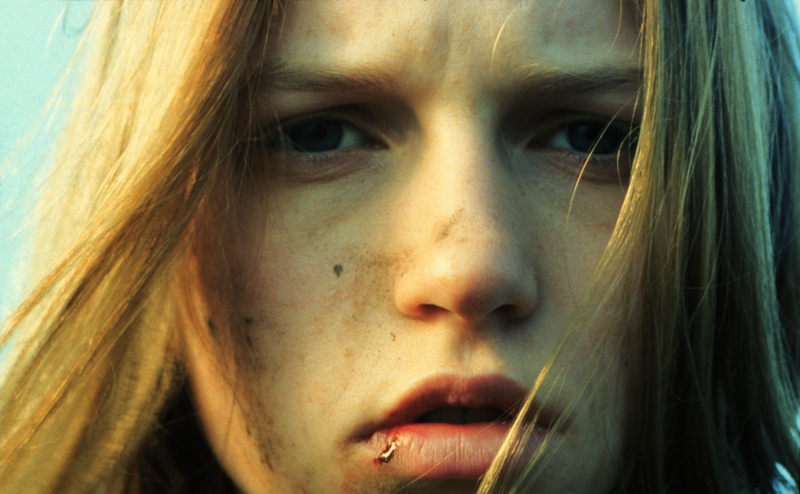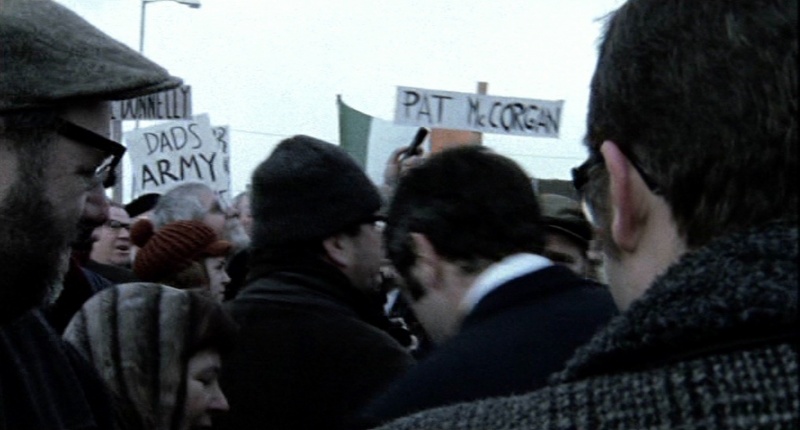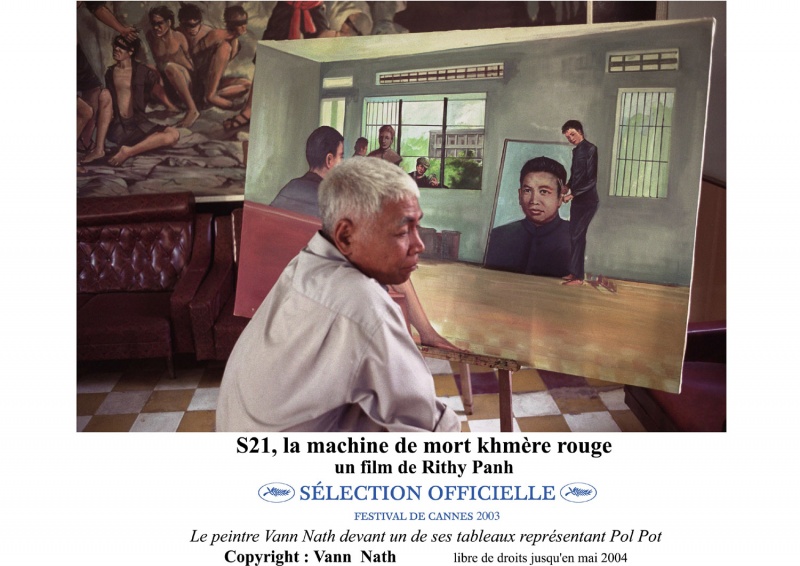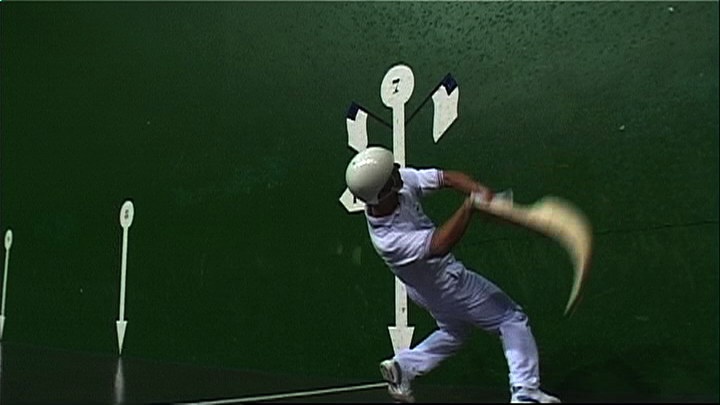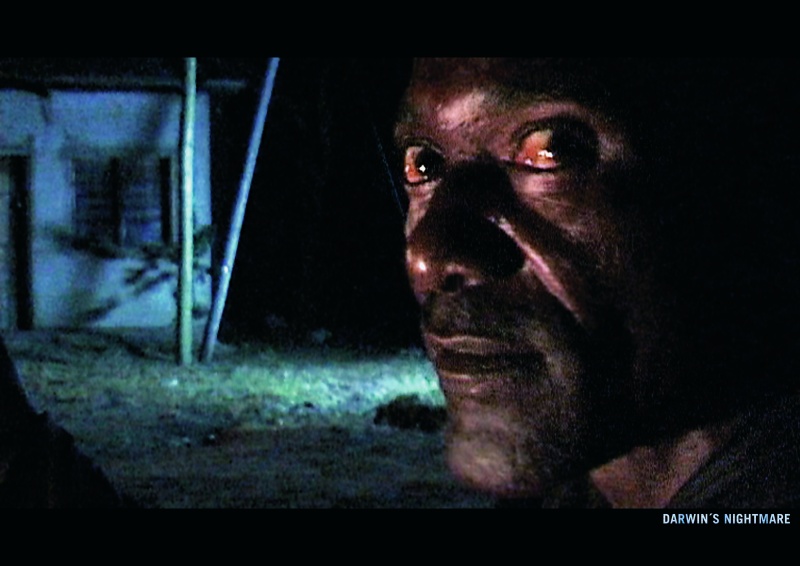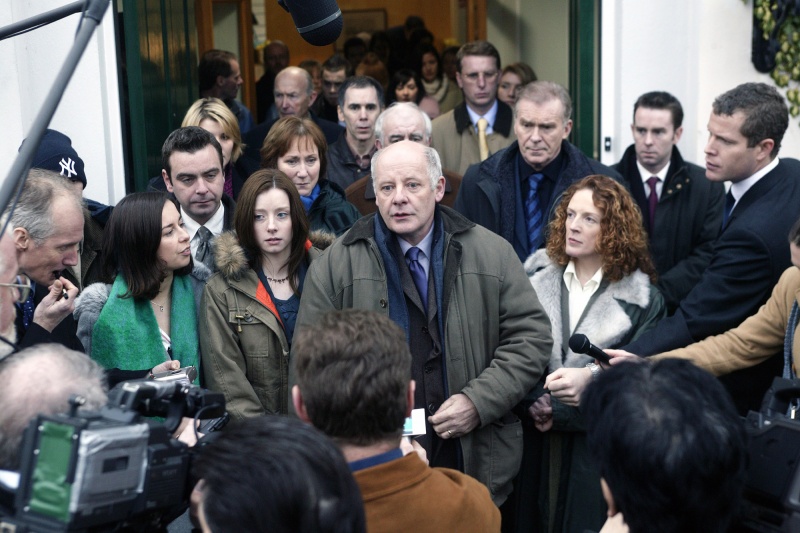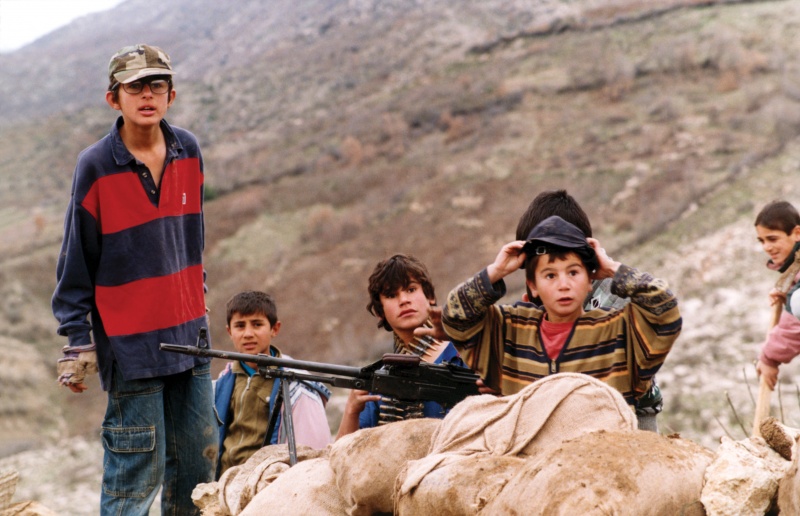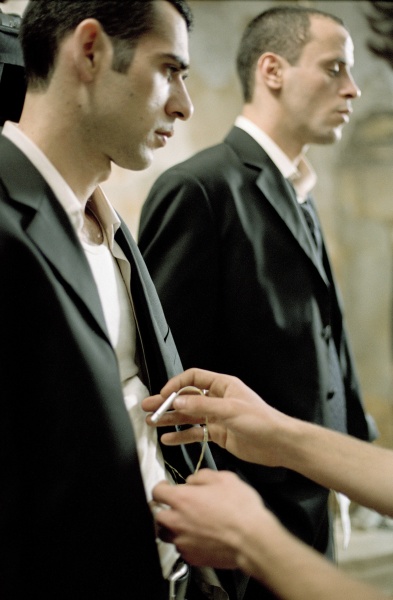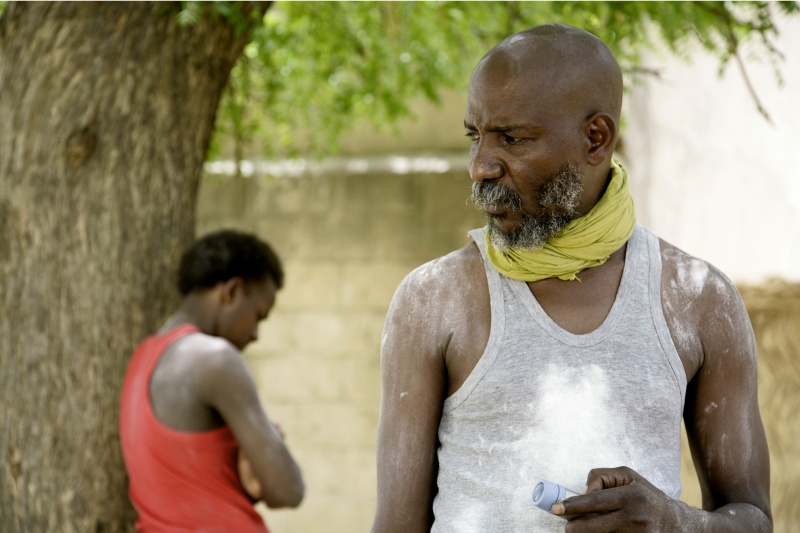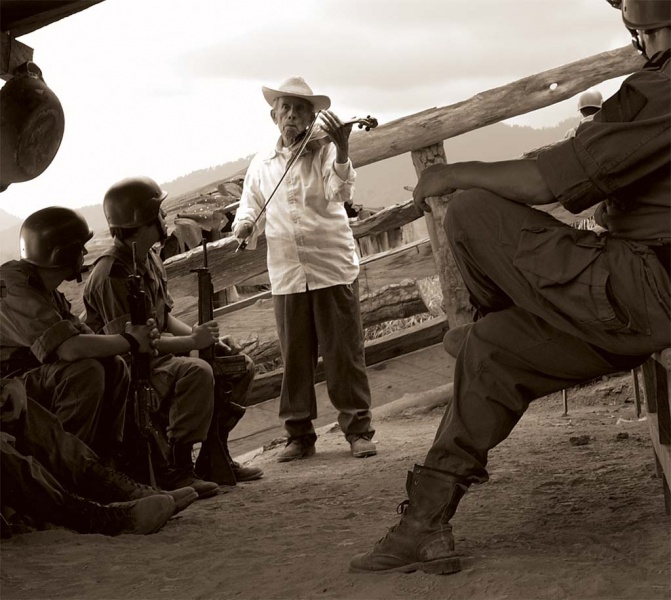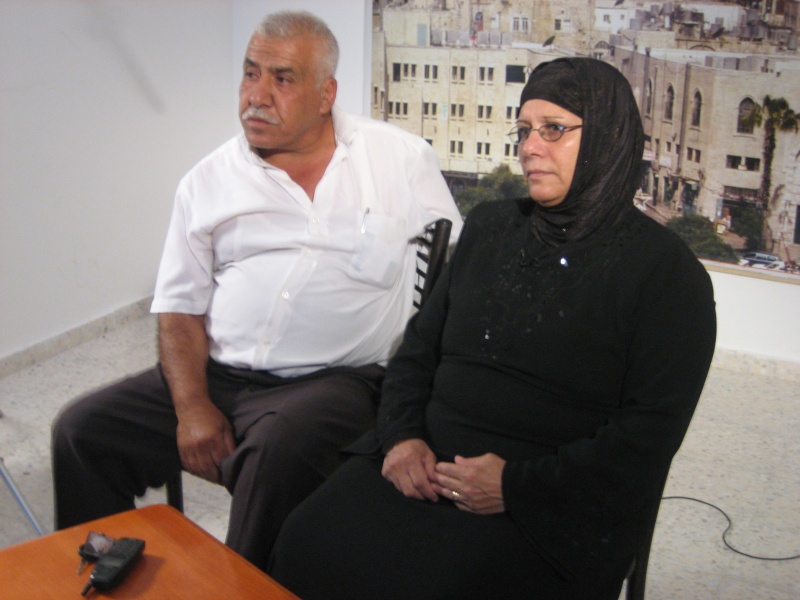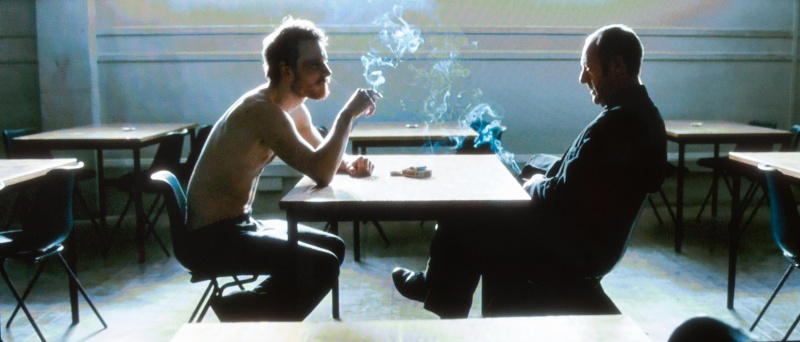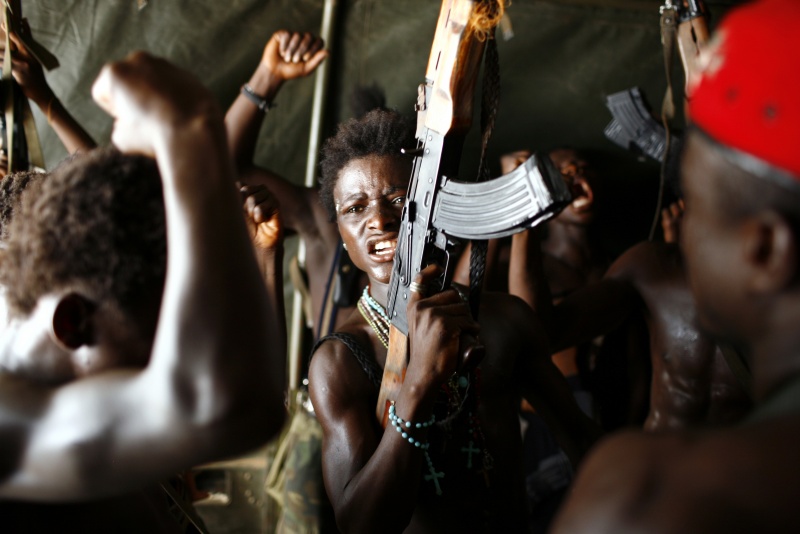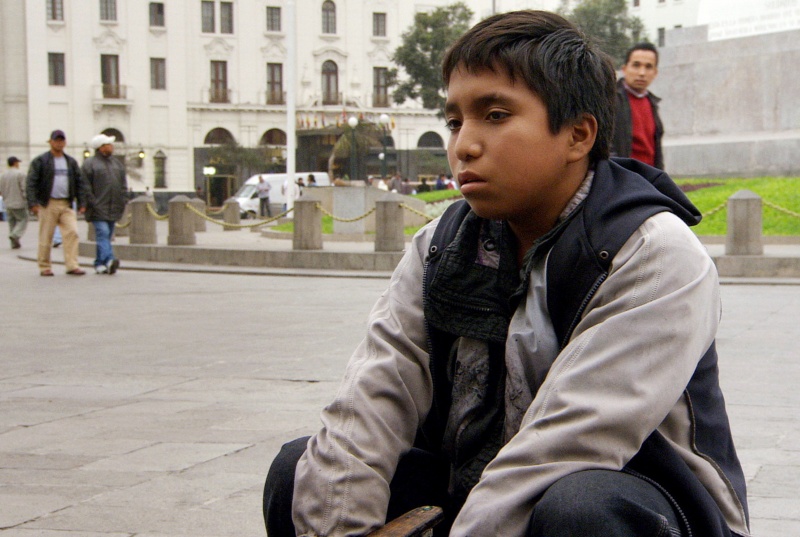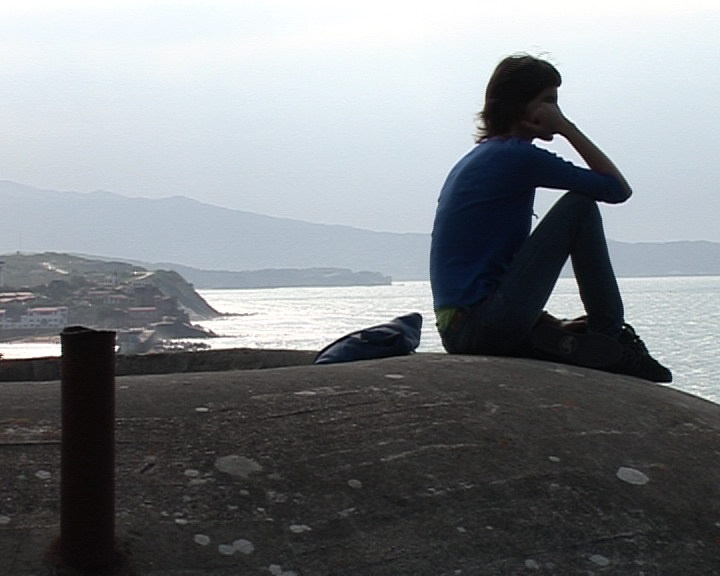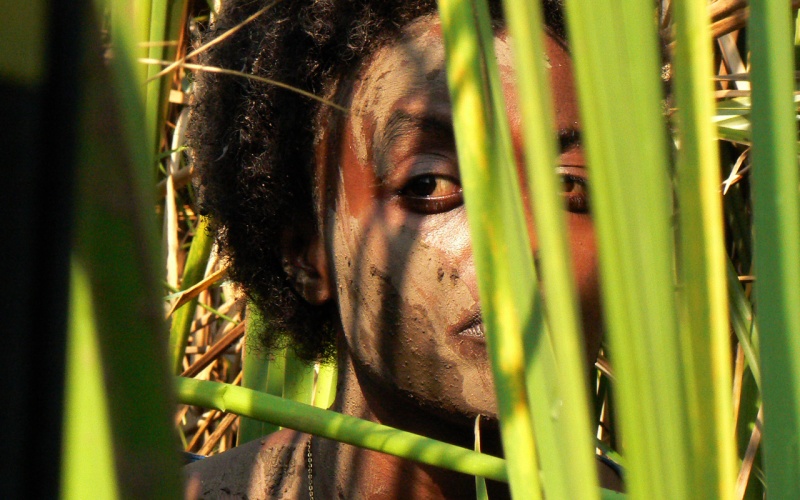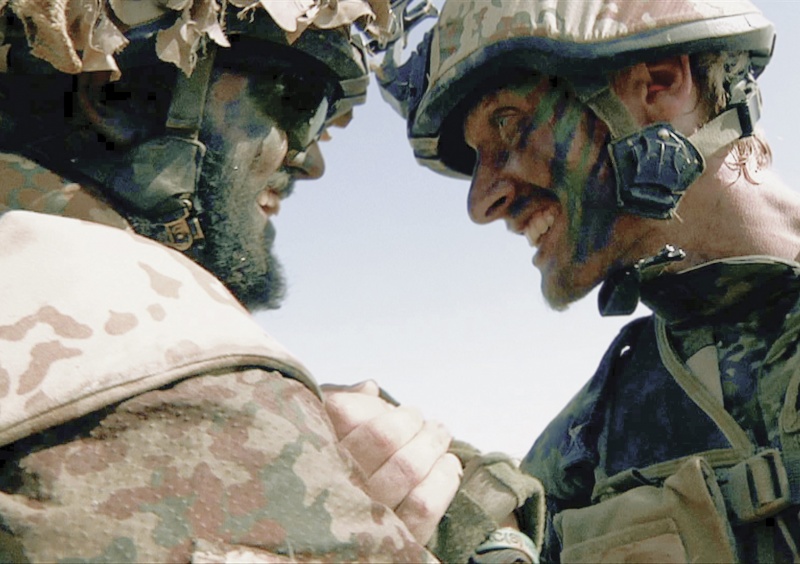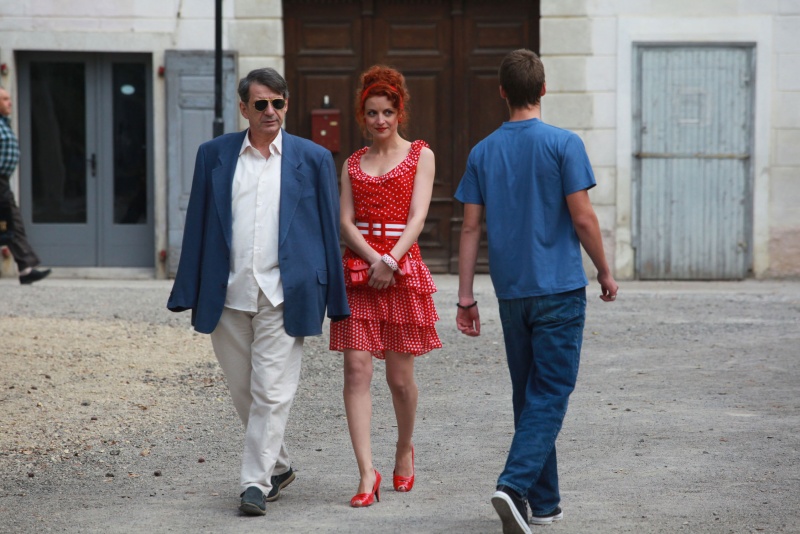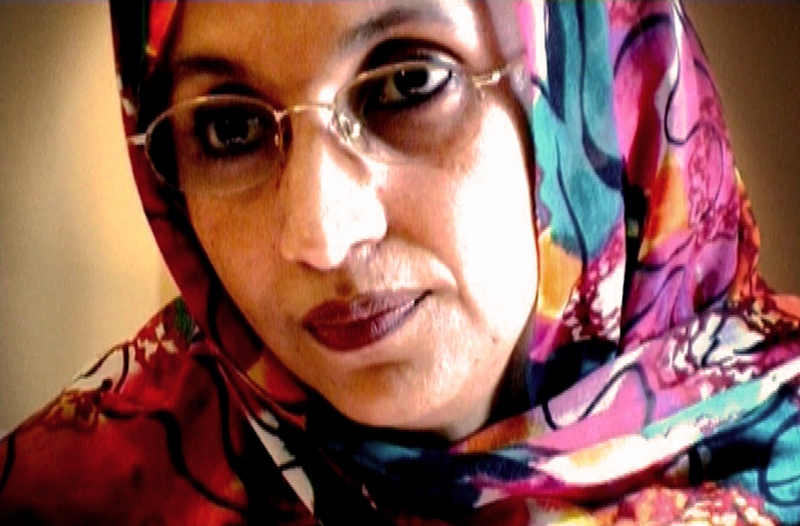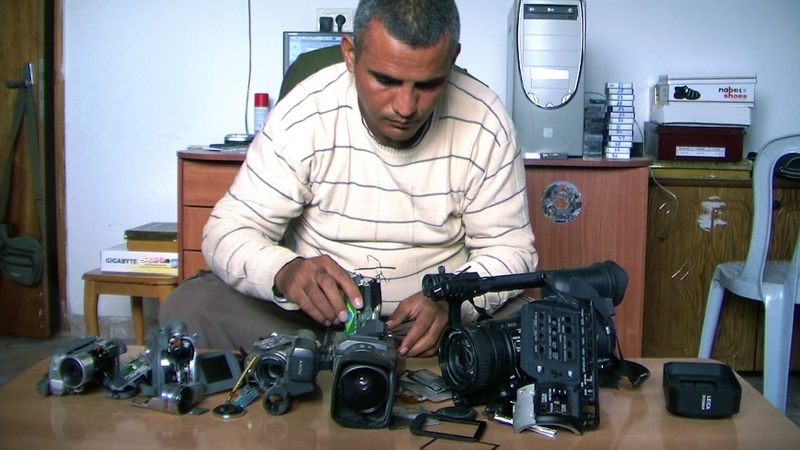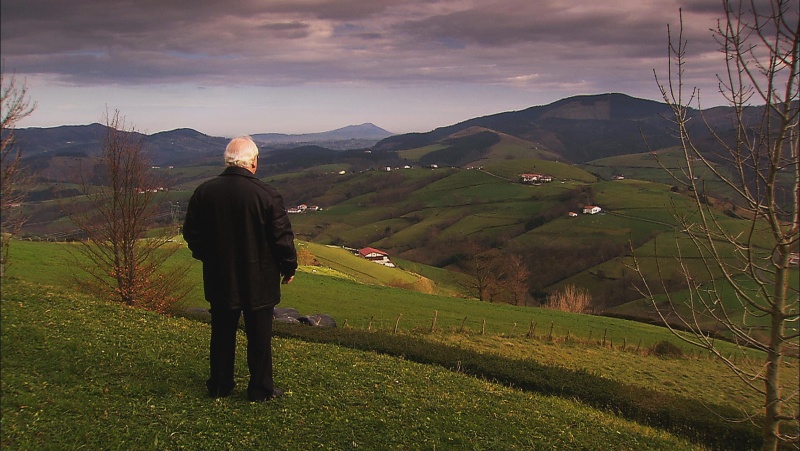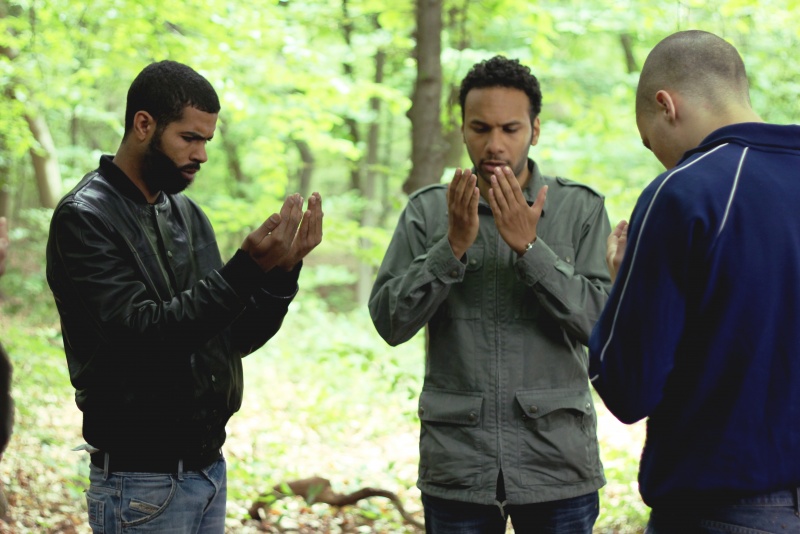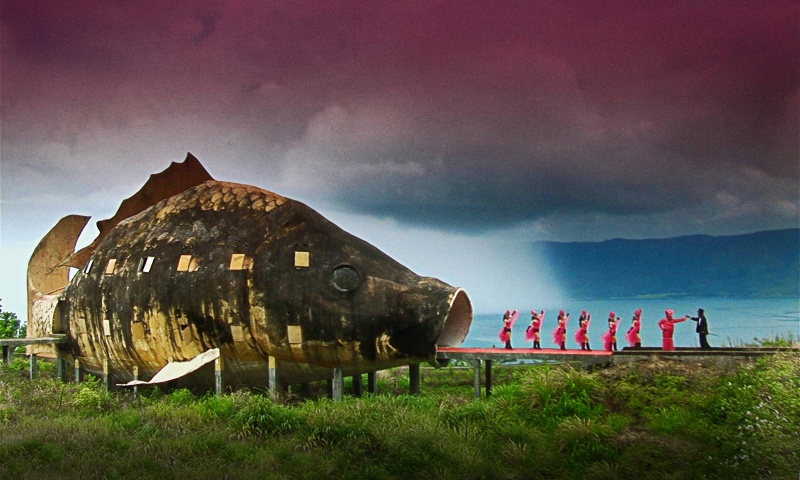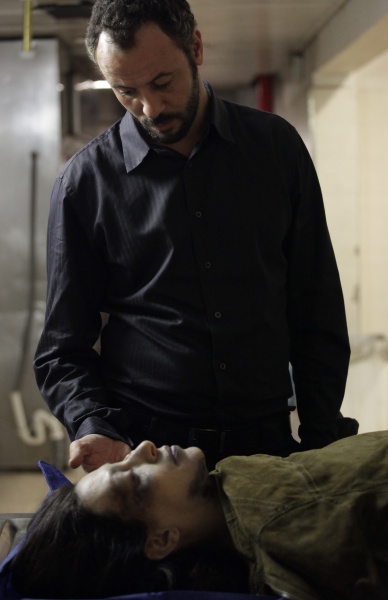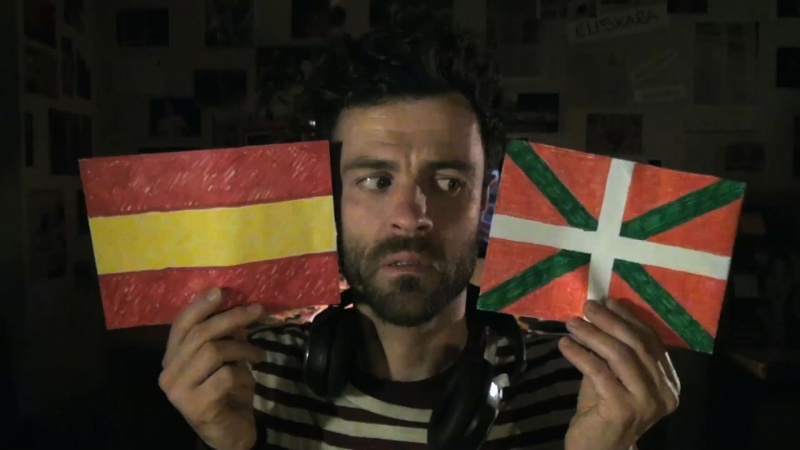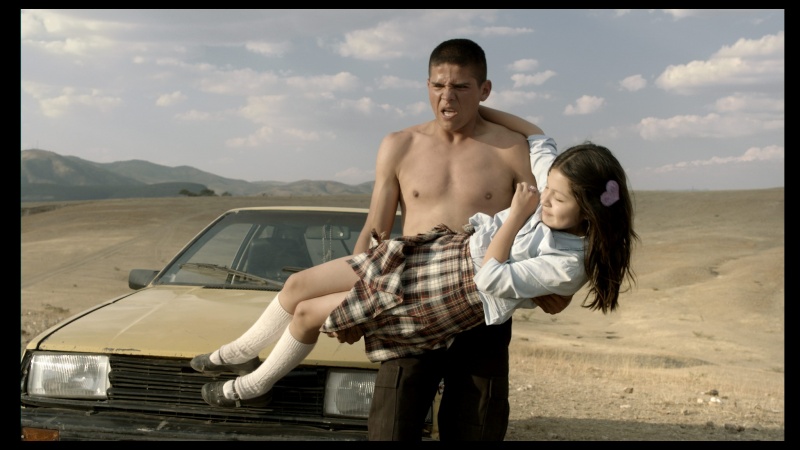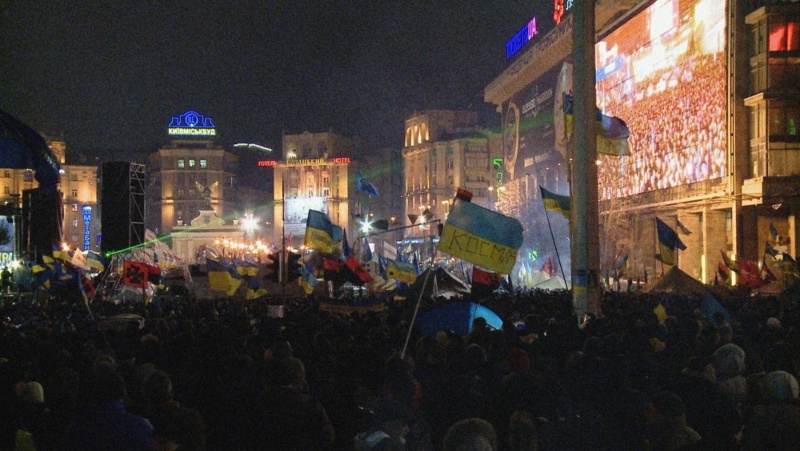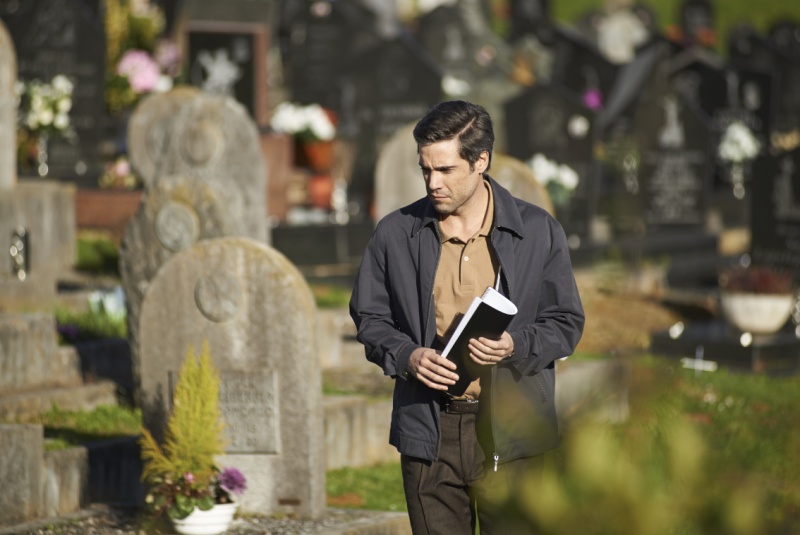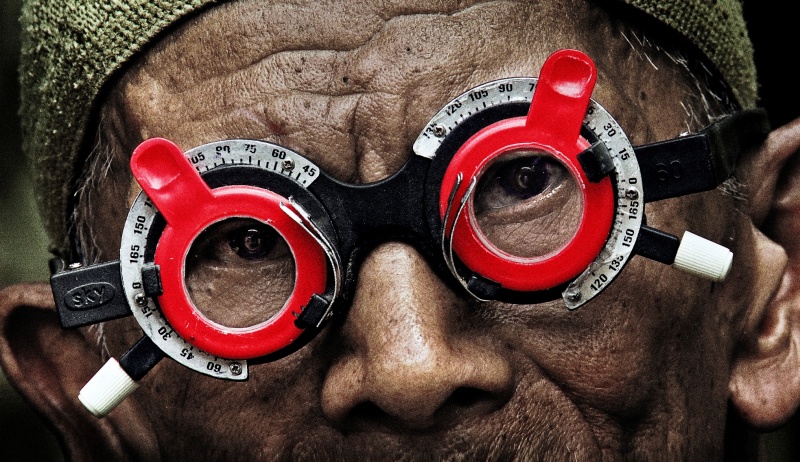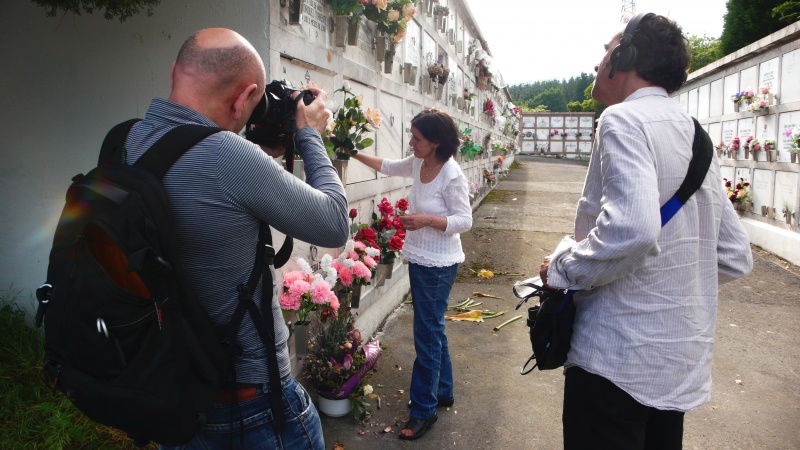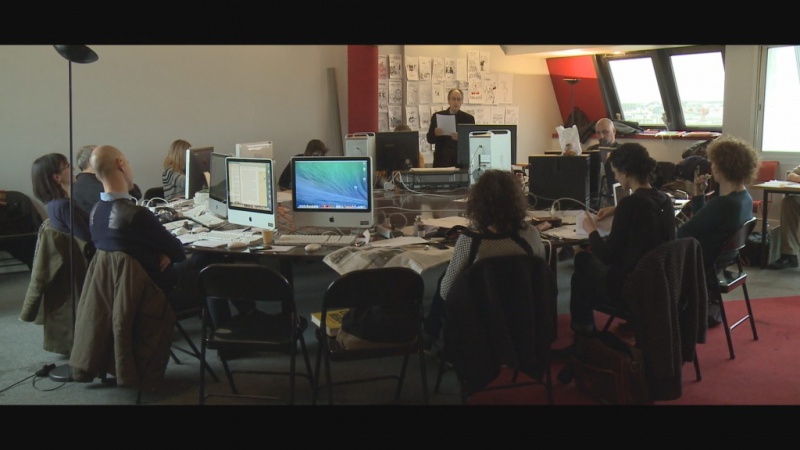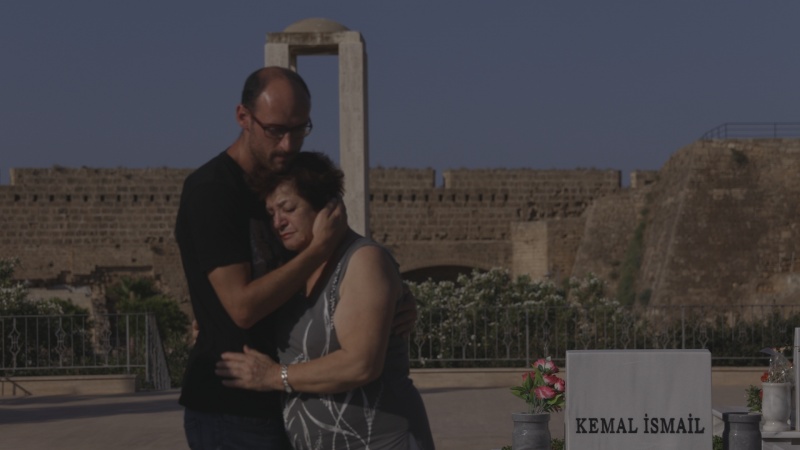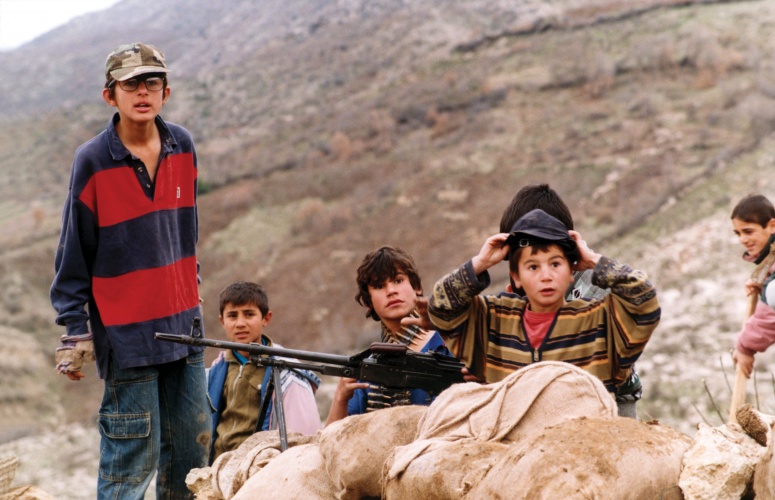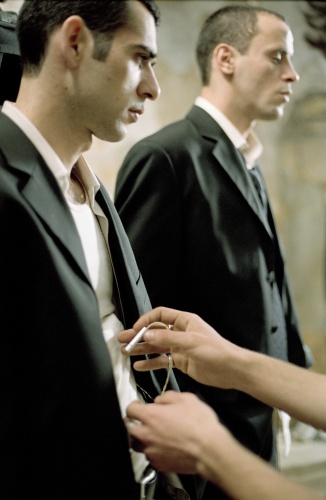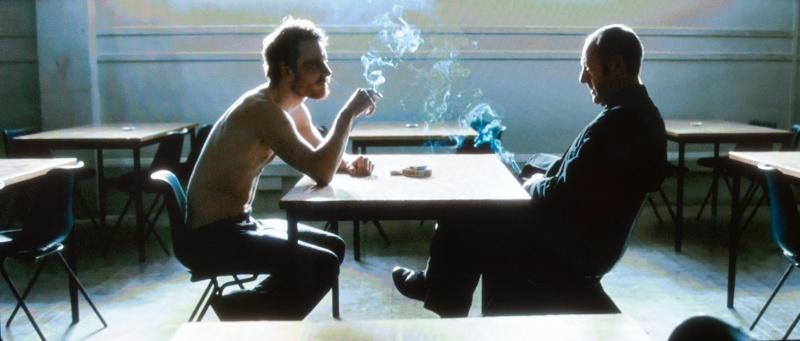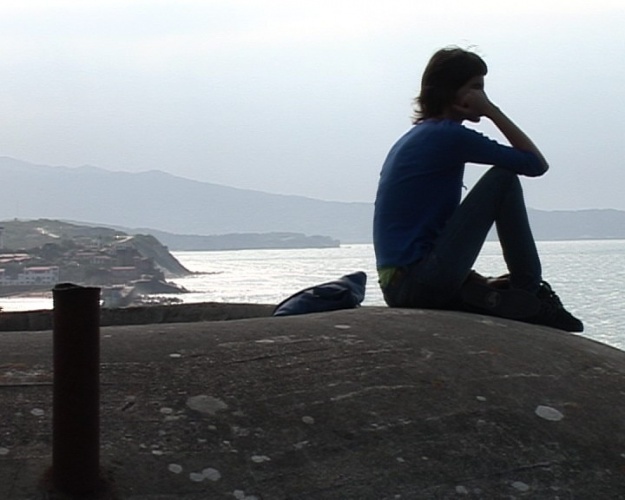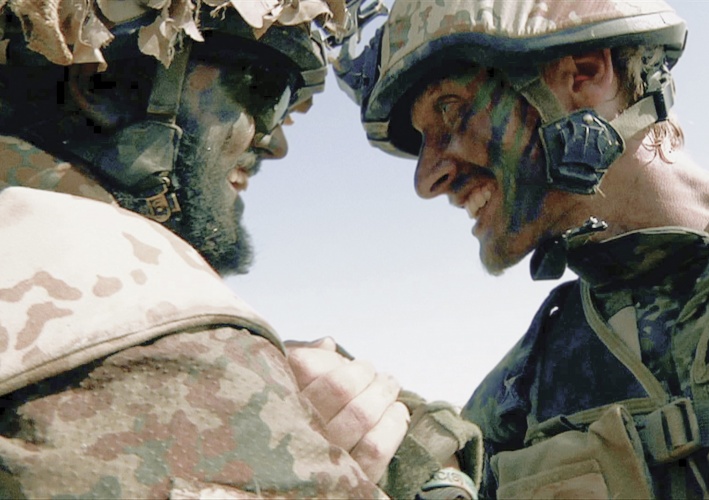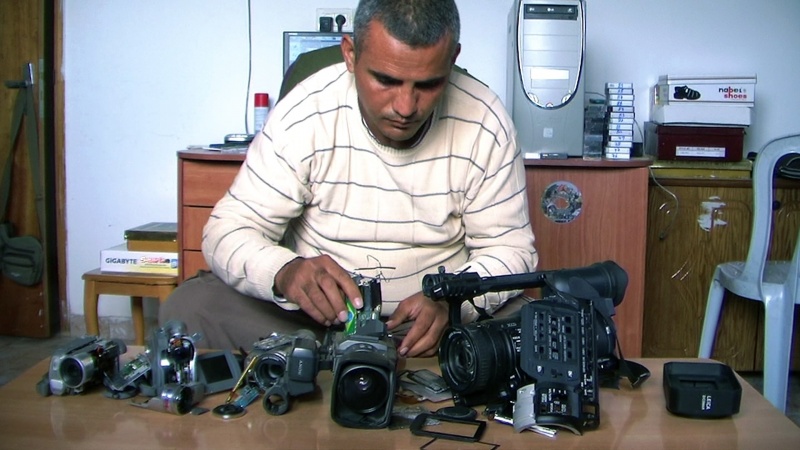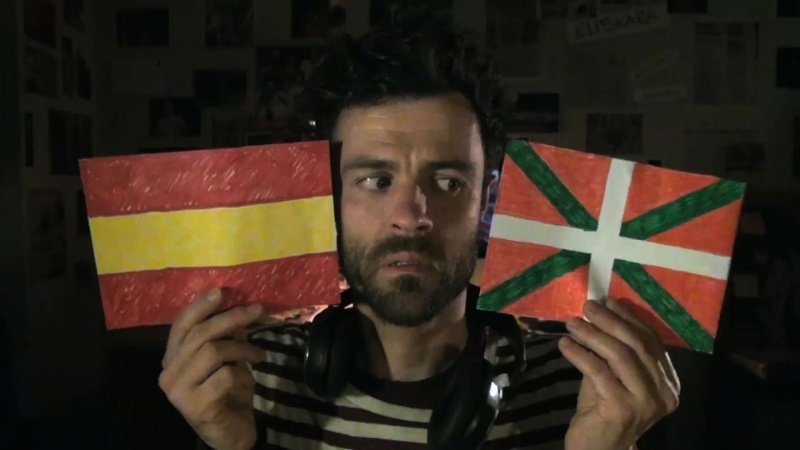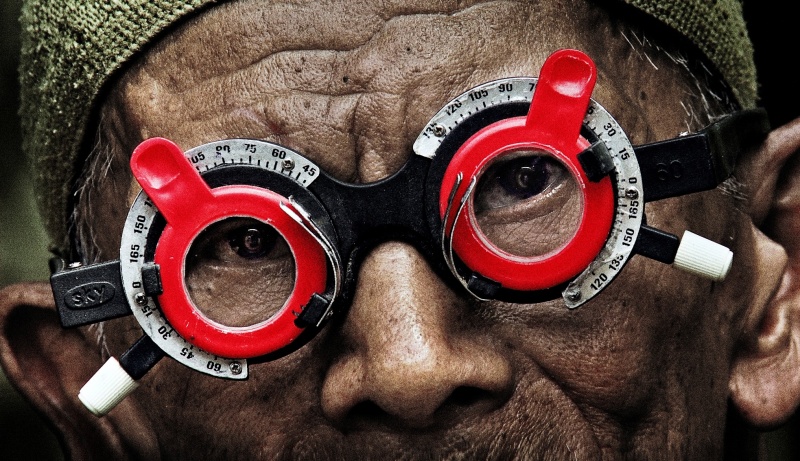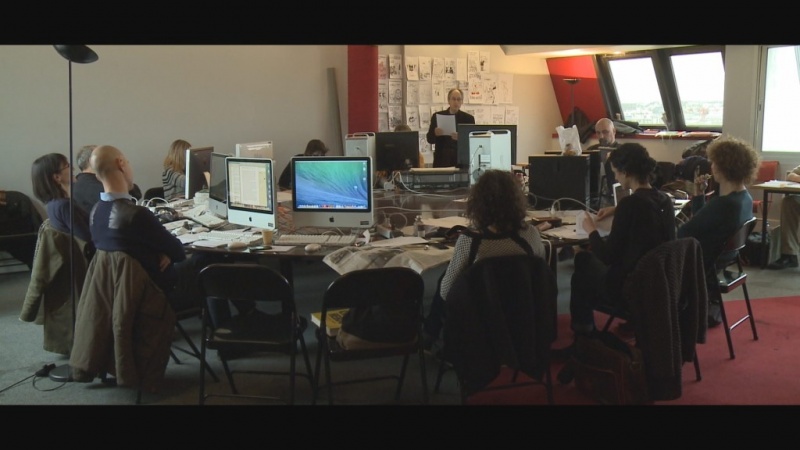Joshua Oppenheimer, whose film "The Act of Killing" lends the season its name, will be present at the San Sebastian Festival.
The Act of Killing. Cinema and global violence is the title of the thematic retrospective forming part of the programme of the San Sebastian Festival’s 64th edition. A selection of 32 films aiming to reflect the times we live in, the situations of violence that exist all over the world: wars, terrorism, territorial occupation, human rights violations, genocides, etc.
The season will include some of the most dramatic episodes to have taken place worldwide in recent decades: the activities of terrorist groups such as the IRA or ETA, State terrorism, clashes in the African continent, the Israeli-Palestine conflict, the Ukraine war, the violence in certain Latin American countries, the situation of the Sahrawi people, the genocides in Cambodia and Indonesia or Jihadi terrorism.
The retrospective includes both fictional and non-fiction titles by prominent contemporary filmmakers including Paul Greengrass, Joshua Oppenheimer, Heddy Honigmann, Hubert Sauper, Amat Escalante, Rithy Panh, Christian Petzold, Steve McQueen, Mahamat-Saleh Haroun, Danis Tanović, Sergei Loznitsa, Bahman Ghobadi, Ziad Doueiri, Hany Abu-Assad and Julio Medem, among others. The season will also include the premiere of one of the pieces of Europa Transit, a San Sebastian, European Capital of Culture 2016 project consisting of the filming of ten documentaries on the current situation of some ten cities which have been or are today the witnesses of conflicts.
The selected films do not stop at being simple witnesses to these conflicts that have caused and will continue to cause so much death and suffering, but have the ability to serve as a weapon of condemnation, as a vehicle for analysis or as a form of direct intervention in many of these tragic problems. Although the aim of the season is not to be exhaustive when addressing potential subjects, countries involved or films, it does endeavour to offer a selection of titles that will help us to analyse some of these realities while watching good cinema.
The season is organised jointly with San Sebastian, European Capital of Culture 2016, and has the collaboration of the San Telmo Museum, the Filmoteca Vasca and CulturArts-IVAC (Valencia).
List of films of the retrospective:
- Die innere sicherheit / The State I Am In - Christian Petzold (Germany) - 2000
- Bloody Sunday - Paul Greengrass (Great Britain - Ireland) - 2002
- S-21, La machine de mort Khmère rouge / S-21, The Khmer Rouge Death Machine - Rithy Panh (Cambodia - France) - 2003
- La pelota vasca. La piel contra la piedra (The Basque Ball: Skin Against Stone) - Julio Medem (Spain) - 2003
- Darwin’s Nightmare - Hubert Sauper (Austria - Belgium - France - Germany) - 2004
- Omagh - Pete Travis (Ireland - Great Britain) - 2004
- Turtles Can Fly - Bahman Ghobadi (Iran - Irak) - 2004
- Paradise Now - Hany Abu-Assad (Netherlands - Israel - Germany - France - Palestine) - 2005
- Daratt / Dry Season - Mahamat-Saleh Haroun (Chad - France - Belgium - Austria) - 2006
- El violín (The Violin)- Francisco Vargas (Mexico) - 2006
- To die in Jerusalem - Hilla Medalia (Israel - USA) - 2007
- Hunger - Steve McQueen (Great Britain - Ireland) - 2008
- Johnny Mad Dog - Jean- Stéphane Sauvaire (France - Liberia - Belgium) - 2008
- El olvido (Oblivion) - Heddy Honigmann (Netherlands - Germany) - 2008
- Itsasoaren alaba (Sea´s Daughter) - Josu Martínez (Spain) - 2009
- Le jour où Dieu est parti en voyage / The Day God Walked Away - Philippe Van Leeuw (Belgium - France) - 2009
- Armadillo - Janus Metz Pedersen (Denmark) - 2010
- Cirkus Columbia - Danis Tanović (Bosnia and Herzegovina - France - Belgium - Great Britain - Germany - Slovenia) - 2010
- El problema, testimonio del pueblo saharaui - Jordi Ferrer, Pablo Vidal (Spain) - 2010
- 5 Broken Cameras - Emad Burnat, Guy Davidi (Palestine - Israel - France) - 2011
- Al final del túnel / Bakerantza (The Light and the End of the Tunnel in the Basque Country) - Eterio Ortega Santillana (Spain) - 2011
- La désintégration / The Disintegration - Philippe Faucon (France - Belgium) - 2011
- The Act of Killing - Joshua Oppenheimer (Denmark - Norway - Great Britain) - 2012
- The Attack - Ziad Doueiri (Lebanon - France - Qatar - Belgium) - 2012
- Asier ETA biok / Asier Y yo (Asier and I) - Aitor Merino, Amaia Merino (Spain - Ecuador) - 2013
- Heli - Amat Escalante (Mexico) - 2013
- Maidan - Sergei Loznitsa (Ukraine - Netherlands) - 2014
- Lasa eta Zabala / Lasa y Zabala (Lasa and Zabala) - Pablo Malo (Spain) - 2014
- The Look of Silence (La mirada del silencio) - Joshua Oppenheimer (Denmark - Indonesia - Norway - Finland - USA - Great Britain - Israel - France - Germany - Netherlands) - 2014
- 1980 - Iñaki Arteta (Spain) - 2014
- Je suis Charlie - Daniel Leconte, Emmanuel Leconte (France) - 2015
-
Irla banandua (Divided Island - Europa transit) - Xuban Intxausti (Spain) - 2016
Clara and Hans are left-wing German terrorists wanted by the police for almost fifteen years. Their increasingly rebellious daughter Jeanne begins to pose a threat to their security when she falls in love with a boy she meets on the beach.
Documentary-style drama showing the events that led up to the tragic incident on January 30, 1972 in the Northern Ireland town of Derry when a protest march led by civil rights activist Ivan Cooper was fired upon by British troops, killing 13 protesters and wounding 14 more.
During the 4-year reign of the Khmer Rouge in Cambodia, a quarter of the country's population was exterminated. In a paranoic system that saw enemies everywhere it turned, any sign of dissidence was enough to wind up in Security Prison S-21. The stars of the film (real S-21 guards and survivors) speak openly about their experiences in that hell.
A documentary by Julio Medem questioning himself and others about the past, present and future of the Basque Country, using an enormous amount of footage of interviews carried out on Basque people and archive material.
In the 60s, a new fish was introduced artificially into Lake Victoria as a scientific experiment. Consequently, the Nile perch extinguished almost the entire stock of the native fish species; the voracious predator multiplied so fast that today its white fillets are exported all around the world. Huge hulking ex-Soviet cargo planes come daily to collect the latest catch in exchange for kalashnikovs and ammunition.
Written and produced by the director of Bloody Sunday, Paul Greengrass, this movie recalls the terrible terrorist attack which took place in Omagh on 15 August 1998, when a Real IRA bomb literally massacred innocent people in the city centre. Jury Prize for Best Screenplay at the San Sebastian Film Festival in 2004.
In a village in Iraqi Kurdistan, on the border between Iran and Turkey, the villagers desperately search for a satellite dish in order to obtain news of the impending American attack on Iraq. Golden Shell for Best Film at the San Sebastian Film Festival in 2004.
Two young Palestinians, Khaled and Said, friends since childhood, are recruited to immolate themselves in a Tel Aviv suicide attack. But things don’t go as planned and they are separated from one another. Each must face up to his fate and his convictions.
Chad, 2006. After a forty-year civil war, the radio announces the government has just amnestied the war criminals. Outraged by the news, Gumar Abatcha orders his grandson Atim, a sixteen-year-old youth, to trace the man who killed his father and to execute him.
The double life of Don Plutarco, his son Genaro and grandson Lucio, poor rural musicians who support the peasant rebel movement to overthrow the tyrannical government in Mexico.
Ever since 17-year-old Rachel Levy, an Israeli, was killed four years ago in Jerusalem by a Palestinian suicide bomber, her mother Abigail has found hardly a moment's peace. Levy's killer was Ayat al-Akhras, also 17, a schoolgirl from a Palestinian refugee camp several miles away.
The opera prima from the director Steve McQueen follows life in Northern Ireland's maximum security Maze Prison with an interpretation of the highly emotive events surrounding the 1981 IRA Hunger Strike, led by Bobby Sands.
Africa today. Johnny, 15, a child-soldier, armed to the hilt, is inhabited by the mad dog he dreams of becoming. With his small commando, he robs, pillages, and slays everything in his path. Laokolé, 13, pushing her disabled father around in a rickety wheelbarrow, strives to flee her city, occupied by teenage-soldier militias.
El olvido (Oblivion) is a documentary about a forgotten city (Lima), a forgotten people (the Peruvians) and a forgotten history (that of Peru). These people, for whom irony is a weapon of survival, have to forget, in order not to give way to cynicism, hatred and grief.
Before she turned two, Haize's father, Mikel Goikoetxea, a member of ETA nicknamed "Txapela", was killed by the GAL. With no recollection of the man whatsoever, 25 years down the line she starts asking questions. Piecing together the testimonies of those who knew him, Haize gradually discovers her father and his time.
Kigali, the first day of the genocide. Rwandans are massacring each other and Westerners are fleeing the country. Jacqueline, a young Tutsi nanny for a Belgian family, finds herself abandoned in the chaos. Kutxa-New Directors Award at the San Sebastian Film Festival in 2009.
In February of 2009, a group of Danish soldiers accompanied by documentarian Janus Metz arrived at Armadillo, an army base in the southern Afghan province of Helmand. Metz and cinematographer Lars Skree spent six months following the lives of young soldiers situated less than a kilometre from Taliban positions.
Bosnia and Herzegovina, 1991. The communists have fallen from power and Divko Buntic returns to the small town where he grew up to reclaim his family home. After a 20-year exile in Germany, Divko uses his money and connections to forcefully evict his estranged wife, Lucija.
Morocco doesn't want us to know what's happening in the occupied territories of the Western Sahara - an area separated from the rest of Africa by a wall measuring 2,720 km in length. The Sahrawi people live under constant threat, they can't pronounce the words "Western Sahara" or "referendum", and the situation is known as "the problem".
When his fourth son, Gibreel, is born, Emad, a Palestinian farmer, gets his first camera. In his village, Bil'in, a separation barrier is being built and the villagers start to resist this decision. For more than five years, Emad films the struggle, which is led by two of his best friends, alongside filming how Gibreel grows.
A documentary about the end of ETA's terrorist activities that delves into the roots of Basque nationalism and presents a collective portrait of this part of Basque society at a key moment for its future in peace and freedom.
A district in Lille metropolitan area. Ali, Nasser and Hamza, aged 20, meet Djamel, ten years older than them. A clever manipulator, Djamel gradually indoctrinates the youngsters, taking advantage of their letdowns and resentment with a society that from now on none of them want to be a part.
A documentary which challenges former Indonesian death-squad leaders to reenact their mass-killings in whichever cinematic genres they wish, including classic Hollywood crime scenarios and lavish musical numbers.
Dr. Amin Jaafari is an Arab surgeon who seems to have it all, with a promising career and a position of respect among the Israelis in Tel Aviv. All that changes after a devastating terrorist suicide bombing when his beloved wife, Siham, is found among the dead as the primary suspect. Jury Special Mention at the San Sebastian Film Festival in 2012.
One day, Asier, a great friend since childhood of the actor and director Aitor Merino, disappeared. He had joined ETA. How do you explain what had pushed him to take a decision even I could hardly come to terms with? Irizar Basque Film Award at the San Sebastian Film Festival in 2013.
Estela is a 12 year old girl who has fallen madly in love with a young police cadet who wants to run away with her and get married. Trying to achieve the dream, her family will have to live with the violence that is devastating the region.
A chronicle of the civil uprising against the regime of president Yanukovych that took place in Kiev (Ukraine) in the winter of 2013/14. The documentary follows the progress of the revolution: from peaceful rallies in the Maidan square, to the bloody street battles between protesters and riot police.
The young Basques Lasa and Zabala, alleged members of ETA, were kidnapped, tortured and murdered in 1983. Twelve years later, lawyers Iñigo and Fede will struggle to identify the murderers, putting their convictions and even their own lives on the line.
Through filmmaker Joshua Oppenheimer’s footage of perpetrators of the 1965 Indonesian genocide, a family of survivors discovers how their son was murdered, as well as the identities of the killers. The documentary focuses on the youngest son, who confronts the men who killed his brother.
Direct witnesses of the terrorist attacks that took place in the Basque Country and the rest of Spain during 1980 relate their memories and give their opinions in this documentary.
On the 7th of January 2015, French satirical weekly Charlie Hebdo was the victim of a terrorist attack that killed 12 people. The following day a policewoman was shot dead in the street. The 9th of January, another attack targeted French Jews. Four hostages were murdered. This film pays tribute to all these victims.
The San Sebastian 2016 Europa Transit embassy arrived in Paphos in July. In Paphos, standing to the south of the green line dividing Cyprus in two, the European Capital of Culture was accompanied by the improviser of Basque verse, the bertsolari Amets Arzallus, given that Cyprus too has a tradition of improvised song. On his journey, Arzallus met Cypriot musicians and poets, in addition to victims of the exodus and the relations of missing people. Through his eyes and his poetry, the documentary directed by Xuban Intxausti will discover the reality of Cyprus, its past and its present.

